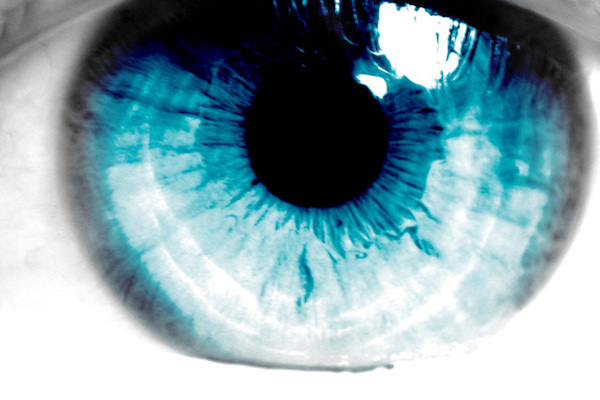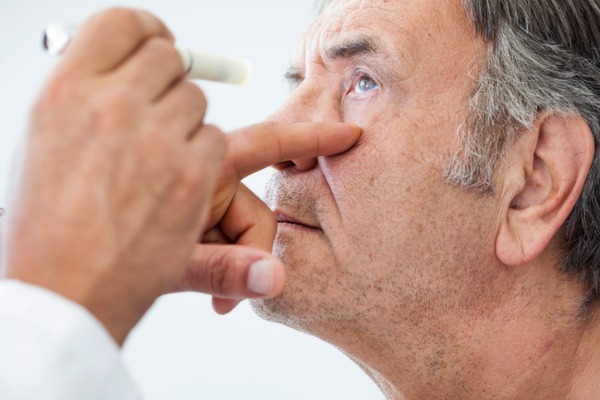
Things we Learned at the American Academy of Optometry (2018) in San Antonio
From students getting excited about their future careers to established doctors handing out clinical pearls, the American Academy of Optometry meeting (2018) offered something for everyone involved.
This past weekend, the American Academy of Optometry held its annual meeting at the Henry B. Gonzalez Convention Center in San Antonio, Texas. The weather outside was rainy and cool (borderline cold), but the energy inside of the convention center made up for it all. The desire to share and learn was apparent and the information flowed like the San Antonio River down the Riverwalk. The event definitely offered something for everyone. From students getting excited about their future careers, to established doctors handing out clinical pearls.
In my effort to promote all things eye health related, I’ll share a bit of what I learned during my time at Academy.
Prevention and Management of Glaucoma:
The topic of prevention is a large part of “Living in Your OcularPrime,” especially when it comes to preventing issues such as glaucoma. In touching on some prevention techniques, Dr. Ryan Bulson, an associate profession at Pacific University College of Optometry, shared some timely advice about keeping eye pressure in the right place.
- Dr. Ryan Bulson quotes on exercise
- “People who get 150 minutes of exercise per week have lower risk of glaucoma.”
- “The reduction in IOP (intraocular pressure) correlates with exercise intensity rather than duration.”
- “Heavy weightlifting can increase eye pressure, so can certain yoga poses (handstands in particular).”
- Notes on nutrition
- High fruit intake associated with decreased odds of developing glaucoma (canned peaches especially good)
- Carrots, kale and other greens associated with decreased odds (some more than others in certain populations)
- Omega 3’s reduce risk for glaucoma and improve vascular perfusion
- More
- Avoid blue light exposure at night to ensure optimal production of melatonin
- Consider switching sleeping positions (sleeping on back with head elevated preferred)
- Moderate caffeine and alcohol consumption
- Avoid tobacco smoking
Practicing Consistency Across the Health Spectrum >>>
Advancements in Contact Lens Care:
As it turns out, contact lens solution is an often overlooked aspect of contact lens care. Most contact lens wearers are too focused on the comfort of their eyes to consider which brand of solution is best. Keep in mind, the best way to get the most out of your contact lenses is to listen to your eye doctor. That being said, Dr. Susan Gromacki (an internationally recognized expert in contact lenses) relayed the following notes on contact lens care:
- It’s imperative to rub contact lenses thoroughly during the cleaning process
- Never use tap water when dealing with contact lenses
- No topping off (or reusing old solution)
- Thoroughly rinse the contact case after each use, then let it air dry
- Replace your contact lens case every three months
She also shared a list of the newest contact lens solutions:
- Clear Care Plus
- Clear Care Rinse & Go
- Renu Advanced Formula
- Revitalens, which will be renamed Acuvue
Correct Contact Lens Care for Optimum Eye Health >>>
Providing Eye Care Globally:
According to Dr. Matthew Pearce, “The era of short-term service provision alone through foreign organized vision camps has reached its useful end.” This statement was made in reference to the process of providing eye care in underserved areas across the globe. In a enthusiastic presentation, Dr. Pearce clearly stated ways to improve our charitable eye care efforts along with suggesting ways that eye care providers in underserved areas can be empowered.
Global eyehealth statistics via Dr. Matthew Pearce:
- There are currently 253 million people with visual impairment living in the world
- 90 percent of these people live in developing countries
- 80 percent of visual impairment is avoidable
One of the main ways optometrists in developed countries provide eye care to underserved countries is through the donation of recycled spectacles. But according to Dr. Pearce, recycled spectacles pose several problems which include:
- Poor quality
- High cost to deliver
- Creates co-dependency
- Low likelihood of finding a correct match
“Ready made spectacles are significantly better than recycled spectacles in developing parts of the world,” said Dr. Pearce and the implementation of ready-made spectacles may not be as hard as it seems. His global plan of action includes disease treatment through improved human resource and infrastructure in underserved countries. He also included the following advice for those who want to help:
- Become a mentor to local healthcare systems (instead of a service provider) to underserved countries
- Co-operate within government priorities
- Determine main causes of eye health problems
- Incorporate local infrastructure
- Discontinue donations of recycled spectacles as well as medications about to expire or with non-native language inserts







